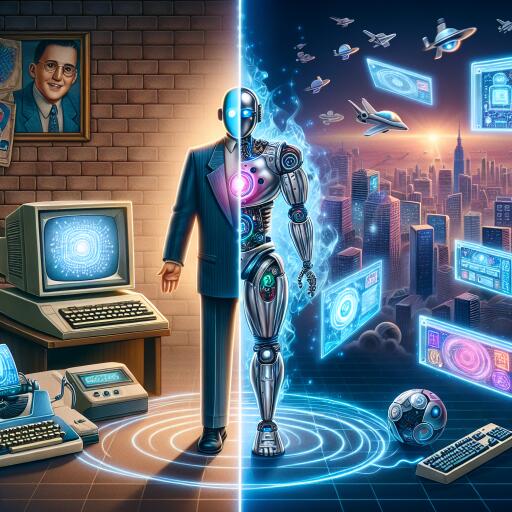Exploring the Next Frontier: AI Agents Transforming the Landscape
In the realms of artificial intelligence, we stand on the brink of a transformative shift. Where once AI chatbots captured our imagination with their conversational prowess, the horizon is now dominated by a new class of AI: the autonomous AI agents. These agents promise to redefine our expectations from AI technologies, propelling us into an era where digital entities are not just reactive, but proactive in achieving complex tasks.
The inception of AI into our daily lives as chatbots was marked by an era where communication with machines became normalized. However, the evolution from AI chatbots to AI agents heralds a new phase. AI agents like Cognition AI’s Devin and Google’s pioneering project, SIMA, epitomize this transition, showcasing abilities that far exceed mere dialogue.
AI agents are distinguished by their sentience-like capabilities. They are not only adept at understanding their environment but can also independently devise strategies to accomplish their objectives. This leap in AI functionality signifies a pivotal move towards creating systems that can learn, adapt, and even innovate over time.
Take, for instance, the remarkable capabilities of Devin, introduced by the startup Cognition AI. Unlike conventional chatbots, Devin emerges as a powerhouse, capable of executing tasks that would typically require a seasoned software engineer’s expertise. From generating project plans to coding and running benchmark tests, Devin’s skill set transcends the traditional boundaries of AI interaction.
Similarly, Google’s SIMA, an acronym for ‘Scalable, Instructable, Multiworld Agent’, stands at the forefront of AI innovation. Trained across a plethora of video games and equipped with the prowess to understand and execute natural language commands, SIMA amalgamates natural language processing with image recognition to perform intricate tasks within game environments. This not only represents a monumental leap in AI capabilities but also demonstrates the potential of these agents to understand and interact with complex virtual worlds.
The collaboration between Google and game developers for SIMA’s training underscores the dynamic engagement between AI technologies and video game environments. Titles such as No Man’s Sky and Goat Simulator 2 have offered rich, multifaceted worlds for SIMA to navigate, essentially enabling the AI to acquire a deep understanding of virtual universes and their mechanics.
Yet, it’s not just about mastering virtual landscapes. The real-world applications of these AI agents are vast. For example, Devin’s prowess was showcased through a demonstration where it adeptly handled Meta’s open-source language model across various platforms, exhibiting a level of proficiency that blurs the lines between artificial and human intelligence.
Despite the promising trajectory of these AI agents, the path is fraught with challenges, particularly in ensuring the error margins are kept to a minimum. The complexities involved in programming these agents to perform without significant mistakes are immense. However, with careful calibration and an emphasis on specific task domains, the reliability and effectiveness of AI agents can be greatly enhanced.
As we look towards the future, the evolution of AI agents is inevitable. With figures like Demis Hassabis, the CEO of Google DeepMind, hinting at the integration of large language models with game-trained AI programs, it’s clear that we’re only scratching the surface of what’s possible. The convergence of these technologies suggests a future where AI agents will not only be our assistants but our partners in navigating both the digital and physical world, ushering in a new era of technological innovation and application.
The journey of AI, from simple chatbots to the highly autonomous agents we see today, reflects the rapid pace of advancement in this field. As investments and research continue to pour into the development of AI agents, we stand on the threshold of a new age in artificial intelligence, one where the line between what’s virtual and what’s real becomes beautifully blurred.









